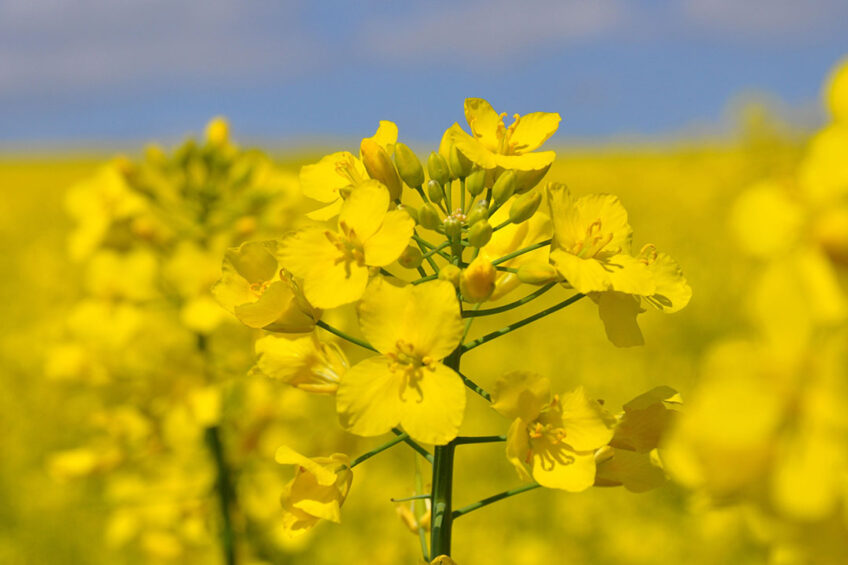War in Ukraine could have lasting impact on oilseed markets

Effects of the reduction in sunflower, oilseeds and soyabean crops being produced in Ukraine due to the ongoing war came under the spotlight at an Agriculture and Horticulture Development Board (AHDB) webinar last week.
Roman Slaston of the Ukrainian Agribusiness Club, said the impacts of the war were going to change the dynamics of Ukraine agriculture for years to come, which in turn, will inherently impact the global grains and oilseed market.
Commenting on this year’s harvest, Slaston said the invasion by Russia in February had significantly affected plantings, with Ukraine harvesting 25% less grain. Yields for maize have been below average and prices for drying have been high due to natural gas prices and the lack of storage capacity.
Oilseeds in Ukraine controlled territories have been higher than expected – 16m tonnes have been harvested with rapeseed making up 3m tonnes of that.
2023 harvests
Looking ahead to next year’s harvest, Slaston said farmers had started sowing rapeseed for the 2023 harvest at the end of July. This has now been completed with an estimated 1.2-1.3m hectares sown. This level of planting is expected to increase as growers switch from gains to oilseeds as margins are better. Winter wheat and barley levels are set to be 25-30% lower.
Switch from grains to oilseeds
For spring cropping, Slaston explained there will be an increase in the share of sunflower and soyabean area over maize. Due to the geographical location of where the maize is grown in the country (central and northern areas), the costs of transporting and in particular insurance and freight, to suitable ports is between $150-$180/t depending on location. This is adding to the switch from grains to oilseeds, as they are higher in value and offer some form of profitability, while grains are making losses.
Exports
Earlier, this year Turkey and the UN successful brought Ukraine and Russia together to enable exports to leave Ukrainian held Black Sea ports. Slaston said the grain corridor was working and exports via sea are set to reach 4.2m tonnes per month.
However, 2.5m tonnes of goods are still going via railway and trucks to EU ports, with some exports leaving via the Danube River.
Fertiliser/finance
Ukrainian fertiliser applications are going to reduce by 40% for the 2023 harvest due to high prices and availability issues. A lack of finance is an issue for farmers in constraining inputs. Ukrainian farmers have been holding stock of large quantities of grain that they have been unable to sell and internal prices are very low, meaning it is being sold below the cost of production.
Future
Slaston said the worst hit areas of northern and eastern Ukraine would take years to recover, due to the level of destroyed machinery and infrastructure. Fields damaged from shelling and missiles would mean some land in the region would probably never go back into agricultural use and will need conservation.
Farmers working in western and central parts of the country would suffer financially due to reduced yields but recovery for these 2 regions would be expected in 1 to 2 years.
Impact on global markets
Anthony Speight, AHDB Senior Analyst Cereals and Oilseeds, said the war had affected global markets across the sunflower, rape oil, soy oil and palm oil sectors. For the UK, net consumption is 2.m tonnes of rapeseed with 1.2m domestically produced. Speight said as a net importer of rapeseed the UK has been importing from Ukraine in significant values since 2018. While the 2023/3 crop had not been affected too much due to sowing taking place before February 2022, exports will be negatively impacted and the UK was likely to have to source from EU countries, such as France, Germany and Spain.
Global rapeseed stocks are likely to increase, due to improved crop returns, especially in Canada. The opening up of Black Sea ports means that premiums for rapeseed have been reducing in the last few months. Soyabeans will also be a large driver of rapeseed prices for the current marketing year. Global stocks ratio will increase for the current marketing year despite a slightly lower revised US harvest. The crop in Argentina is set at 51m tonnes to be highest since 2018/9 and Brazil is expected to see record production at 149m tonnes.
His comments were part of a webinar organised by the UK’s Agriculture and Horticulture Development Board looking at the impact of the situation in the Ukraine on global and domestic oilseed markets. It is the first of a series of virtual study tours organised by the AHDB.







